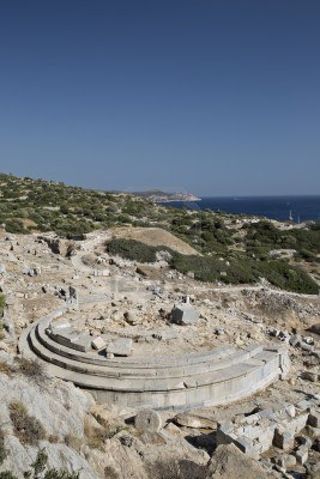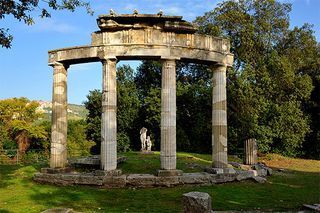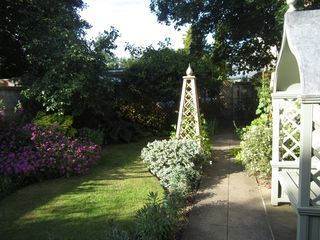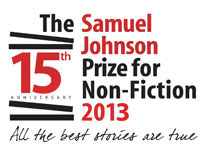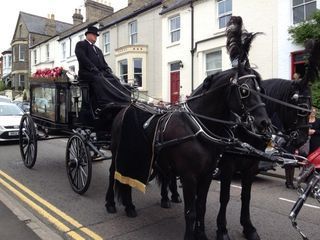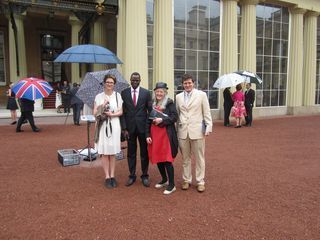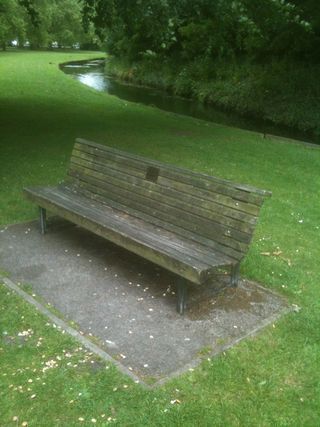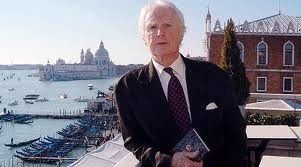Mary Beard's Blog, page 43
July 18, 2013
Off to the Goddess of Love?
Plans for this summer in my neck of the woods come down to two things only: reading and writing. That's not to say that I am not going away (we have a few little foreign breaks planned). Bit when I get there I am hoping to get a bit of uninterrupted time for the life of the mind, with a sea view, some swimming breaks and a nice cocktail or three. And most important I guess with a good alibi for not getting distracted from all the things that distract when you spend the whole summer in Cambridge.
But it always seems a wasted opportunity not to use part of the summer to see some bit of the classical world you havent seem before (rule of thumb, so far unbroken: when you actually visit a place, you always discover more than you did by just the library work). So this year we have a visit planned to Knidos in Southern Turkey, south of Bodrum.
There are all kind of reasons a Classicist might make for Knidos (including the inscribed text of a famous Roman law against pirates of 100BC). But our reason for going is to see the even more famous temple of the goddess of love, Aphrodite.
For this temple contained the famous early fourth-century BCE sculpture of the goddess by Praxiteles, often said to be the first nude statue in the Greek world. Whether this is strictly true is quite another matter, but the Elder Pliny hypes a story that suggests it was at least a rarity. Praxiteles, he explains, had made two versions of the goddess (one clothed, one naked) and put them on sale for the same price. Two places were after them. The people of the island of Kos quickly chose the clothed version, leaving the people of Knidos to take the naked -- which turned out to be hugely to their advantage because tourists for the rest of antiquity flocked to see it.
We have a wonderful ancient (Roman date) account of one group of tourists from a little essay preserved among the works of Lucian (though almost certainly not by him); it's called Erotes ("sex") and you can read it in English on-line here. The framing narrative is a discussion between a celibate and a bi-sexual on the best type of sex, and in the middle of this we are taken back to an earlier discussion between the celibate and an Athenian and a Corinthian. The men had put in at Knidos and went straight to the temple and started to argue about the statue and how it contributed to their argument.
I'm keen to get a sense of the lay out of the place (what did "putting in" at Knidos mean? and how would they have got to the temple from the harbour?). Sadly, the statue itself no longer survives, but we do get a great account of it in Pseudo-Lucian, who has one of his characters point to the stain in the marble on the back of the statue's thigh, and then be told by the woman on the staff that it was mark left by a young man who was so besotted with the marble goddess that he contrived to get locked up in the temple with her at night... and eave the indelible mark of his semen behind (and indeed on her behind).
So there's some footstep tracing to be done here and I'll let you know. But there's also two wry jokes about the whole enterprise. First, so far as I can tell from what I read, the remains of the temple of Aphrodite were re-excavated in the late 60s and early 70s by an American archaeologist Iris Love -- yes the uncoverer of the temple was actually called "love" (surely no coincidence, or at least the cause of many digside jokes... nomen et omen and all that). If you can get JSTOR, her articles are in the American Journal of Archaeology from 1969 to the early 70s.
But perhaps even more curiously, the reason that she identified the remains she found as the temple in question (given the statue was no longer there), was partly through the ancient descriptions in Pliny and Lucian (but they are to be honest a bit hard to make fit exactly). But it was more thanks the repro temple that the Roman emperor Hadrian had erected in his "villa" at Tivoli in the second century CE, complete with a repro statue (pic above). It's a nice indication of the imbrication (or maybe dependence) of classical Greek art and culture with its Roman version.
July 15, 2013
Time for gardening?
One of the reasons that I realise I must be getting older, is that I have found myself getting interested in our garden. So far as I know, it is only a very few rare horticulturalists who have any time for gardening between the age of about 10 and about 50.
Most young kids show a short flurry of interest, whether it's growing a broadbean in a jar or being allocated some hankerchief-size plot next to the family dustbins. But it tends not to last. Single broadbeans might be easy to germinate, but they are pretty unrewarding, once you've got the point. And, aged nine or so, your own plot is normally a disaster. I remember giving it up in a huff when I discovered that ground elder took more to eradicate than just snipping it off with a scissors at ground level.
For much of the next four decades, I took the same basic line. I remember when the kids were little occasionally devoting a few hours on a Sunday to a major weeding operation. It always felt like even less rewarding housework than cleaning the bath. That's to say, it was never ever DONE. Even if you have better weeding techniques than you had when you were nine, as soon as you reach the end of the garden, you can almost see the ground elder popping up again where you first started. Like the Forth Bridge but worse.
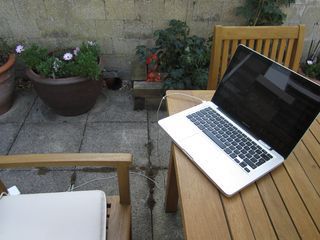
When we moved to a bigger house with a slightly bigger and quite well tended garden, we enjoyed a few months of winter reprieve (thank god for winter, the weeds hibernate, I used to think). But then the same thing happened all over again, and we gave up the unequal struggle and got some help. But it was still more damage limitation than gardening.
It wasn't until I got to the dangerous age of 55 that I began to be converted (the husband was a little older, but it was the same sort of light on the road to Damascus for him too). A down to earth, practical and inspirational garden planner (thanks Charles, that's you) told us very nicely that we were simply mad in neglecting our garden.
We could actually enjoy it. We could sit out in it. We could eat there. We could even work and read. And he set out on a transformative and actually fairly inexpensive exercise, which made something approaching an oasis out of what had been a desert (a process now continued, let me confess, by the nice people from Green Man).
Now, OK, it will be obvious that I'm not actually devoting many hours of the weekend, back on my hands and knees tending the soil. But I have changed my attitudes and inclinations in some quite striking ways. I find myself sometimes hoping for rain (does anyone under 50 ever greet a downpour with the thought "at least it'll be good for the garden"?). And when the sun goes down, if there's been no rain, I'll pull the watering hose out and give the plants a good drink. I find myself particularly keen to tend the runner beans (Sure the harvest will be only enough for a plateful, but it will still be ours -- you can see their flowers peeking out on the right, growing up the little obelisks). And we've not only acquired some garden furniture, but the husband had some external power sockets installed, so the laptop need never want for fuel, even outside (brilliant move, garden office shown above).
good for the garden"?). And when the sun goes down, if there's been no rain, I'll pull the watering hose out and give the plants a good drink. I find myself particularly keen to tend the runner beans (Sure the harvest will be only enough for a plateful, but it will still be ours -- you can see their flowers peeking out on the right, growing up the little obelisks). And we've not only acquired some garden furniture, but the husband had some external power sockets installed, so the laptop need never want for fuel, even outside (brilliant move, garden office shown above).
I've also started to work out which plants are which. The fact is I've always been quite good on wild flowers, having been brought up in the countryside to tell my ragwort from my stitchwort, my greater from my lesser celandine. But beyond dahlias and chrysanths, I didn't use to be much good on the garden variety. I'm getting better though. I can spot a lavatera and a sedum, and I can tell a magnolia from a magnolia stellata.
But most striking of all, just occasionally when Gardeners' Question Time comes onto Radio 4 I dont actually turn it off. How elderly is that?
And how rather nice too?
(Hope you enjoy the pics of the plot -- they make it looked rather posher and larger than it actually is!)
July 13, 2013
On being a (literary) judge
In the wee small hours I wonder why exactly I agreed to being a judge for the Samuel Johnson Prize. It was, I think, a combination of feeling dead flattered to be aske, thinking it might be interesting and the winning rhetoric of the chair (Martin Rees) who asked me; indeed his email must count as the most winning request I have ever received (and I am not going to share it with the world because I fully intend to pinch one or two of his winning phrases in due course).
The trouble is, as I know, that I am a terribly slow reader; I'm the woman who took 2 whole weeks (well spent) to read Alan Hollinghurst's, Folding Star. For better or worse I have never managed to master the art of speed reading (aka skipping); and I am not likely to master it now. (It goes on the list of all those things I shall now never master before I die.. including, playing the violin or getting on your bike by starting off with one foot on the pedal and scooting). In fact I have come to wonder if, maybe, one thing I am really good at is reading slowly.
Anyway all this was fine and theoretical when I was about to be a judge, and the books hadn't actually arrived.
Now I have a large box of them in my living room (no I dont know how many), and I find I am behaving rather like an anxious undergraduate. That is to say, I am spending all my time strategizing about HOW I will do this, rather than getting on with it.
I look at the box and I wonder whether to read the 800 pagers first. But if I do that how depressed will I feel when I have only done 2 in a week? But then how will I feel if I have all the long ones left till the end? Then I get out the diary and look at the upcoming train journey/flights and wonder which I could fit into what time slot. Then I think, well may be if I bought some of the books on kindle I could just take them with me wherever I went....
All this instead of actually getting in there and READING.
The bright side is, just think what a lot of great books I'll have read when I've finished.
July 9, 2013
The Who live at Wembley: the don's view!
Last night, for the first time in more than 30 years I went to a big rock concert (I'm not counting my little outing to a gig of the resident TLS band, "Spirit of Play" a few years ago).
Thanks to my comedian mate, Tony Law (go see him if you can), the son and I (with Tony and family) had some great seats for The Who's Quadrophenia and More concert at Wembley Areana (murky picture above). It was the last of their tour and a benefit gig for Refuge, a charity which provides help, services, advice etc to victims of domestic violence.
Now, back in the day, I was rather a fan of The Who (how could you not be?), but to be honest my old vinyls of "Tommy", "Live at Leeds" etc haven't been much played lately. So I was as much apprehensive as excited about making their acquaintance again (what if I didn't like them as much as I thought I did.. wouldnt that ruin the memory?). Besides I wondered if the 58 year old don would stick out like a sore thumb in a youthful audience.
I needn't have worried.
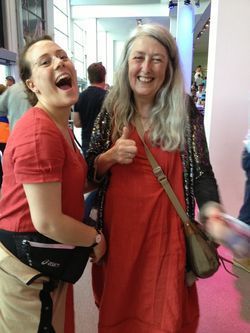
As we were waiting in the foyer to meet up, it became clear that it was a very mixed audience, in aage and everything else. Who should I see first but Kate, the Press and PR Manager from the British Academy? (The truth is I didnt recognise her to start with... on the simple "you dont expect to see someone from the British Academy at a rock concert" principle -- but there we are above). Then I bumped into John Fisher, who's been our builder in Cambridge for the last 25 years, and is at least as old as me..! And so on.
The actual concert (in which, of course, the two main stars, Daltry and Townshend are both pushing 70) was fantastic. As the son observed, it was great that they played Quadrophenia through from start to finish; because that somehow made it clear that they took the whole art form seriously, and they weren't just out to play some greatest hits in a gesture to nostalgia. And the whole thing was backed up, while they were playing, by video clips and newsreels (with glimpses of Keith Moon and John Entwistle, of some of the old Who's most famous moments, as well a range of politics and protest from Churchill and Profumo to Pussy Riot). If you were to do a bit of pretentious lit crit on it, you'd say that the performance was a rather clever set of commentaries on time, newness, memory and aging.
Not that we were entirely deprived of the greatest hits . . . because the finale was made up of some of the old favourites, from "Pinball Wizard" to "Teenage Wasteland" and "Wont Get Fooled Again". During which I fell to thinking -- more pretention and a bit of self-promotion coming up, be warned -- that its catchy lyrics "Meet the old boss, same as the old boss" would have made quite a good theme tune for the new documentary on Caligula we've just made for BBC 2, and showing I think at the end of the month. One of the main topics we discuss in that (and I fear it is becoming more relevant by the day) is the nature of violent political change, and what revolutions achieve.
But for me, there was an even better finale. Tony is a bit of a mate of R Daltrey, so we went back stage and I actually met him. Blimey, if I had known 40 years ago that, aged 58, I would actually shake the hand of Daltrey, I'd have wept with pleasure and longing. As someone nicely pointed out on Twitter yesterday evening, it was maybe no bad thing to have to wait so long: if I had touched his flesh back then, I wouldnt have washed for a month.
So a big thanks to Tony Law for making a great evening possible.
And my next musical date? A much more sedate Prom.
July 6, 2013
Women reviewers: reality check

I have often felt rather smug when I have read about how few women get to review books in broadsheet newspapers or literary magazines. I have worked on the TLS for about 20 years now, and -- if you asked -- I would spout honestly about the many women from whom I have commissioned long and serious Classics reviews. No insult intended to those I have left out, but Emily Gowers, Edith Hall, and Emily Wilson instantly spring to mind as regular contributors to the TLS. In fact, quite a number of people say to me that (for better or worse) the TLS Classics pages are quite a "women's zone".
I thought that, given the recent storms about the exclusion of women from literary journalism (on which let me say the TLS is never cited as one of the worst offenders), I would check out the actual figures. What proportion of reviews on Classics published in the TLS were written by women? I would have predicted that it would be 50/50% male female. In fact, since January, it was much more like 25-30% women, to 70% men.
To be fair to me, that is a lot better than many other literary magazines -- and the figures are very much better, I think, if you take a year long trajectory, rather than 6 to 7 months. I would also add into the equation the fact that the number of reviews commissioned by me, rather than of those actually submitted, was more weighted towards women (? are women less bold in late submitting?). It's also true that the proportion of women appearing in the Classics pages of the TLS is greater than that of senior women classicists at UK universities overall (from where the bulk, but not all, of TLS reviewers come).
All the same , it reminds me of the old story we are often told about women at meetings: everybody (women included) estimates the time the women speak as actually greater than it ever is. Everyone says women dominate the discussion, when in fact they done. And I shall have to have reflect again on my own version of that problem (we may THINK its a women's zone, but actually it isnt.. and so?) .
But the reviewers are only one side of the coin. The other question is, who is getting reviewed? Here, I am pleased to say I do a little better; something more like 40-45% of the classics books reviewed are by (or part authored by) women. But this raises other questions about gendered writing, gendered subject matter and its relative value. How many women, for example, write about the history of trains or warfare? (Or, to be fair how many men write about the history of women?).
To some extent -- but only some -- I feel laid back about this. To use a musical analogy, I don't much care if women tend to play the flute rather than the bassoon, for whatever reason. I DO care if flautists never get paid as much as bassoonists, and if women who want to play the bassoon are actively or passively discouraged from it (and, sure, that includes the way that the sheer gender imbalance is a turn off for many women -- just like in Maths, where I am afraid some bright women look at the culture of male Maths and run a mile).
I'm not sure what to make of this. But just doing the figures was consciousness raising for me. To have seen that I was not near 50/50% wont necessarily change my commissioning habits (after sall, we have some great male reviewers), but it will make me think harder about my own mis-cognitions... and I certainly wont worry for a while that women are "dominating".
July 2, 2013
Dido's lament?
I am all too well aware that as this blog gets older it will carry even more reviews of funerals.
Today's ceremony marked the passing of Dido Davies (on the name more below); I didnt know Dido  especially well. She wrote a brilliant biography of William Gerhardie, she was an ex-heroin addict, she wrote a series of sex manuals under the pen name of Rachel Swift (How to Have an Orgasm....), she was (as Alex Masters's spot-on eulogy at the funeral said) "unforgettable" -- and she used to live in the house opposite us when we lived in Hertford Street in Cambridge. We all still remember Dido (who was just a couple of years older than me) sitting on her front steps in the sun with her pet snakes. And she sent me a great card a few months ago, when she was already very ill, wishing me well in my fight against the
especially well. She wrote a brilliant biography of William Gerhardie, she was an ex-heroin addict, she wrote a series of sex manuals under the pen name of Rachel Swift (How to Have an Orgasm....), she was (as Alex Masters's spot-on eulogy at the funeral said) "unforgettable" -- and she used to live in the house opposite us when we lived in Hertford Street in Cambridge. We all still remember Dido (who was just a couple of years older than me) sitting on her front steps in the sun with her pet snakes. And she sent me a great card a few months ago, when she was already very ill, wishing me well in my fight against the internet trolls. How could I not go to say good-bye?
internet trolls. How could I not go to say good-bye?
She had been sick for some time, and I guess had planned the funeral (Dido would have...). Up front was a hearse that went through Cambridge drawn by four black horses (plus trumpets), brilliantly sullying the streets. (That's the picture at the top. I only came in at the end of this, but thanks to Clare Pettitt for the image of them leaving Dido's house)
The church service itself was a brilliant and moving mixture of the sad and the mad, the pious and the subversive.
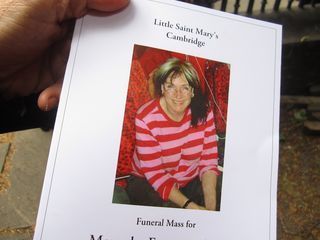
There was great music, high church Anglicanism with all the smells and bells (Dido was about as high as you could get without actually being in Rome), and a coffin extraordinarily painted with vultures on the outside. (You can get a glimpse on the right.)
you could get without actually being in Rome), and a coffin extraordinarily painted with vultures on the outside. (You can get a glimpse on the right.)
It was also the first time that I realised what Dido's full name was (written in the top of the coffin, and in the order of service):
"Mercedes Francesca Selina Rachel Jane Dido Davies"
I found myself wandering and wondering. How did she get that name? Why "Jane"? (was it to give her a "normal" name in case she wanted/needed one?) And what on earth did she write when asked for her full name? How would it fit into the boxes usually available? How was it we all knew her as "Dido"?
All this musing was interrupted by the end of the service: a hymn into which even the most agnostic can almost join, "Guide me o thou great redeemer" (to Cym Rhondda). If anyone with any influence is reading this, I'll have that one please, when it's my turn.
Meanwhile, goodbye and good luck Dido, wherever you are.
June 28, 2013
The OBE ritual...the recipient's view
Regular blog-readers will know that I was awarded an OBE at the new year; they will also know of the dilemmas faced and conquered. (Since then I have come across Alan Bennett's discussion of his own dilemmas in "Arise Sir..." that you can find in Untold Stories: Bennett made a different decision, and at a rather higher level, from me -- but the issues he talks about are much the same, and he's no less ambivalent.)
But this blog is about the story of what happened today, when I went to be presented with the medal itself. It's the inside story of my trip to the palace.
The instructions said we were to arrive between 10 and 10.15. Despite Beard's over-vaunted Republican tendencies, she was very concerned not to be late. So I got a stupidly early train and met the daughter at Kings Cross at 8.45 and reached the palace just after 9.00 -- feeling a bit embarrassed about our promptitude. We needn't have worried. There were already a good few people in their glad rags waiting by the appropriate gate (as you can see on the right), so we disappeared round the corner to bring "the hat" out of the plastic bag and afix it to the head.
promptitude. We needn't have worried. There were already a good few people in their glad rags waiting by the appropriate gate (as you can see on the right), so we disappeared round the corner to bring "the hat" out of the plastic bag and afix it to the head.
When we got back from this little enterprise, there were a lot more people assembled, and the son and our S Sudanese friend Samuel had arrived. (The husband, in case you are wondering, is in Greece.)
Despite the claims that there would be no entrance till 10.00, in fact the gates opened by 9.45. and we did the security checks, traipsed across the big courtyard, and got to the main entrance with its lovely toytown soldiers, where we left our cameras and phones in the cloakroom (the palace is not stupid and knows that any smartphone could mean a bootleg video). After the loo break ( a truly wonderful ladies loo with Edwardian wooden seats and pull up handles), the recipients were separated from their guests: recipients to the right, guests straight on to their watching seats.

We recipients, of my rank at least (the upper echelons were elsewhere), were gathered together in the picture gallery -- past the wonderful portraits of Victorian and Albert as Romans, and a frankly not very good sculptural version of Nydia, the blind girl from the Last Days of Pompeii. What followed was a rather endearing version of an upmarket school speech day, with a lot more staff being extremely nice to all us recipients ("congratulations" was the word spoken by almost everyone you met) -- combined with a dash of Ruritanian monarchical ritual. (If you want a more analytic version of this, try Edmund Leach's essay "Once a knight...", in the collection, The Essential Edmund Leach.)
Once in the picture gallery, I spotted a tv screen in the corner, showing Prince Charles presenting gongs to line up of people. My first reaction was that this was all a cleverly choreographed conveyor operation, that some people had been asked to show up at 9. 00 am, and they were already going through the system (rather like the crematorium principle, one service is finishing when you show up for yours). When I looked closer, however, it said that this was a video from an earlier investiture. It was, in fact, quite useful, as it only took two or three minutes of this to see how some things worked. In particular, when you had your chat with the royal, he (or she) made it very clear when the chat was over: the royal hand came out for the shake and off you went. No need to worry about blabbing on too long.
As I was watching this on my own, a nice lady came up to talk ... and she explained that she had got an award because she had Alzheimers and went round to talk to groups about what that was like. She was immensely good value and was quickly followed by more women (it being a somewhat blokeish group, and we ladies did congregate), including Linda Woodhead from the University of Lancaster, Muriel Robinson from Bishop Grosseteste University, and Eileen Bleasdale, a headteacher from Laneshaw Bridge (one of whose ex pupils is due for Cambridge Classics next year, all being well). And this educational huddle was soon joined by Jonathan Godfrey, who is now head of Hereford Sixth Form College, but whom I had first met in my first job, when I went to talk about 30 years ago to the classicists at Henley Sixth Form College.
By 10.45 we had our marching orders from an extremely practised courtier, with great style and friendliness (if slightly de haut en bas); we were told how and when to bow or curtsey (aaggh yes) and lined up in groups to get our gongs (we had already had a hook pinned on to make it easier for Prince Charles to afix the medal). At this point (after a great reconnection with Anna Watkins.. Newnham and Olympic rower) I fell in the military men who were due on just before me, and in ten minutes learnt more than I had ever known before about the coding of service uniforms (thank you esp. Adrian Bettridge for the lesson)... and even more amazing it turned out that one of the Palace staff, minding the queue, had been at the Leicester Square Theatre for the gig I did with Richard Herring the other week.
After that things went rather speedily. In our little encounter, Charles (well briefed I assume) mentioned my Pompeii documentary, and so I shamelessly trailed with him the up-coming Caligula documentary (in which I pointed out his Mum's corgis have a cameo role.. or are at least mentioned!). Then it was to the back of the hall, to wait until everyone else had got their medal. To be honest, it did feel quite a long time, and was accompanied throughout by a military band playing pop classics (but I did enjoy a bit of a gossip in intervals with my neighbour).
Overall verdict? Well, for kindly ritual, you couldn't really fault it. The Ruritanian bits (Gurkhas and Beefeaters, etc) were a bit hard to take entirely seriously, but every member of the staff was utterly charming, and there was a kind of buzz being thrown together with a load of other people whom you would never otherwise have met and who were all prepared to join in the fun -- just like you were.
What I will do with the damn medal (with the rather prominent inscription "For God and the Empire"), heaven knows. Lose it, I guess.
June 25, 2013
The Cambridge Martyr's Memorial
It's hard to miss the Martyrs' Memorial in Oxford: the steeple-like structure by Gilbert Scott at St Giles, commemorating the sixteenth-century Protestant martyrs, Cranmer, Ridley and Latimer (burnt not far away in Broad St).
away in Broad St).
I hadn't realised until the weekend -- and thanks to my friend Heather Glen -- that there was a martyr's memorial in Cambridge: a park bench. We were having lunch on Sunday and Heather explained that she had recently stoppped by the brook on Jesus Green to examine the little plaque on a fairly ordinary bench there. She had expected it to commemorate some recently deceased local, whose favourite spot it had been, for musing/ feeding the ducks . . .
But it was nothing of the sort.
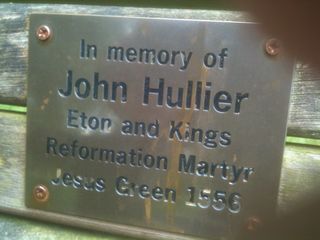
It was actually a memorial to a Protestant martyr,John Hullier, who was put to death on this spot on Jesus Green in 1556 in the pogroms of the reign of Mary I. Being a good Cambridge academic, Heather went home to look him up in Fox's Book of Martyrs (which she not only owns, but can find). He turns out to have been a local cleric burnt at the stake on Maundy Thursday.You can read the full account from Fox here. But the essentials are awful enough. Fox explains how the man "undressed" (does that mean that he took off his cassock or that he went to his death naked?).. then how he went to the stake:
"After praying, he went meekly to the stake, and being bound with a chain, and placed in a pitch barrel, fire was applied to the reeds and wood; but the wind drove the fire directly to his back, which caused him under the severe agony to pray the more fervently. His friends directed the executioner to fire the pile to windward of his face, which was immediately done."
Books were then thrown into the fire -- one of which (the Communion Service) he picked up and clutched to his heart. The death which soon followed, Fox insists, turned into a spectacle; the flesh was burnt from the skeleton, which remained upright, and the watchers piled in to grab a bone for a relic.
We were eating our luch about 500 yards, and almost 500 years from this horrible -- and almost forgotten -- event. Well done, we thought, to whoever put that little of plaque of remembrance on the bench. The poor Rev Hullier is not QUITE forgotten.
June 20, 2013
What are universities (not) doing about "social exclusion"? Some myths . . .
I got up earlier in the week to hear Alan Milburn ("the social mobility czar") talking on the Today Programme about access to "top universities", coinciding with the publication of a new report: "Higher Education: the Fair Access Challenge". It's worth reading, and there are some terrible headline statistics. Just to take one from the early pages of this report, the odds of a kid in a state secondary school on free school meals in Year 11 getting into Oxbridge at age 19 are something like 2000 to 1; the odds of a privately educated getting in at more like 20 to 1.
Noone in their right mind can think this is remotely acceptable, and everyone I know in Cambridge is working as hard as they can to change it. That said, you have to be a bit careful about some of the more lurid statistics. When I looked at the Freedom of Information stuff that David Lammy had got a couple of years ago, it was instantly clear that the location of the outreach events were confused with the audience. That is to say, the Ancient Greek Summer School that happens every year at Bryanston School (for all comers, with bursaries etc) seemed to have gone down as a fortnight's wall to wall outreach to independent Bryanston School (Why choose an independent school as the host? perhaps you ask. Well you try finding a safe, secure and legal place to hold a residential course for a load of 16 year-olds....) So when I see people tweeting that: "More oxbridge outreach events at Eton in 2012 than entire cities of B'ham & L'pool." I strongly suspect that the Eton Summer Courses have got mixed up in these figures somehow.
My problem is not with recognising the problem; it's with the proposed solutions. On the radio Milburn did say quite rightly that it was time to stop the blame game between universities and schools and government and start working together on this one. All the same, the basic tenor of his message on the radio (and in the report) was that universities should be doing MORE than they are. There was still that sense that Oxbridge dons, especially, were only paying lipservice to access, that they continued in their bad old ways and chose students in their own image, without much thought for social in/exclusion.
It made me want to weep.
I tweeted my tears -- and the usual range of tweets, emails and comments followed, many with good suggestions about what uni's might be doing to improve things.
In fact, so far as I could see, we're doing all of them already.
At this point I have to say that I am writing with my personal views, not those of Cambridge University (though I doubt they are very different). And I am writing this from my own experience in Classics, other subjects would offer different nuances, but not a completely different picture. So here goes . . .
Shouldn't we be making more efforts to cover the whole country, some people suggested, instead of having all Oxbridge colleges chasing kids from the leafy South East? Well actually at Cambridge, we have divided up the country -- so that particular colleges build up relations with different areas, precisely to prevent that kind of duplication. It's called the Area Link Scheme, and my own college is working with Birmingham and Walsall, Enfield, Redbridge and Barking & Dagenham.
Shouldn't we be making lower offers to bright kids who struggled against difficult circumstances? The truth is that as long as I have taught in Cambridge, I've done just that. What on earth would the point be of asking for the same grade in A level Ancient Greek, from the applicant who has only been studying in the lunch time once a week, and the one who has been learning it for years on a full timetable. In the "old days" we would sometimes make really low offers in particular circumstances; that's not so common now as -- lets face it -- the vast majority of our applicants are going to get three A's anyway.
Shouldn't we be doing something for those kids who havent had the opportunity to learn the subjects we require at school? Well, we are. In Classics, since 1972, we've had a special course for students who havent studied Greek before, and for the last 10 years we have run a targetted prelim year for those who havent been able to learn Latin. (It makes the course 4 years rather than 3 -- and yes, the fee issue bulks large...)
Shouldn't we be getting to kids earlier, before the very moment when they are deciding to apply? The answer is that we do. At Newnham, we have run some very successful Taster Days for Year 10 students; and most colleges do the same.
Aren't interviews unfair on non-pushy kids from the maintained sector? I've never quite understood this one. Noone objects to employers interviewing young people for jobs, but the Oxbridge selection process has become demonised. In my experience an interview (and there are videos of what really happens here) is more likely to expose the "just well trained", rather than terrify the nervous. We are also very careful (using all the contextualising data about school, average results, usual HE destinations) not to exclude kids with slightly lower grades by simply not interviewing them. It is true that we dont interview everyone. But what good is served by calling a kid 300 miles away for an interview in medicine, when they have done no Chemistry and the are predicted to fail Biology A level? It would be a cruel raising of expectations.
My sense is that when you add all our efforts together -- the school visits, the open days, the summer schools, the lectures, the video performances, the teachers workshops, the collaborations of all types -- we really couldn't be doing MORE. It might, of course, be that we should be doing DIFFERENT, and that is where Milburn is right to ask for a bit more joined up thinking (even if he still comes down to pointing the finger at universities). In the end it may be convenient to rap Oxbridge over the knuckles (always a vote winner!), but we are all implicated in this -- including schools (many teachers are excellent, but some really do throw our invitations in the bin, and tell the kids that they just wouldnt fit in here), and government pundits (everytime someone comes onto the radio and says that we are biassed against the poor/ethnic minorities etc..they have just made our job in convincing them otherwise even more difficult).
Of course, these issues have been chewed over endlessly. But it is worth picking up the point made by Wendy Piatt, from the Russell Group, on the Today programme, that the stress on grades (as in the "so many thousand applicants with 3 As at A level get rejected by Russell Group universities" line) can be misleading. It is just as much the question of which subjects they are in. This isn't some old fashioned prejudice against Media Studies. It's much more the question that to do medicine you really do need more science than just biology; and engineering will often demand Further Maths.
One way forward would be to do what we have done in Classics, and add a year into the University course (some other subjects have done that, but it can be off-puttingly expensive). The other way is to look much more carefully at how we can get kids to make the right choices at A level (that's one of the reasons that we at Cambridge now try to reach them early).
But it's not entirely easy. For a start, when you're 16 and are just coming up to your GCSE's, your mind isnt likely to be on what the effect of your AS/Alevel choice might be on your ability to get into uni to read Engineering two years down the line. Schools should be thinking about exactly that. But the common transition from comprehensive to sixthform college after GCSE doesn't exactly help that particular version of joined-up thinking. I've watched kids going round the various stalls at Sixth Form College Open Evenings, as the different subjects advertised their wares -- more or less sexily. The potential students are often rightly excited by what lies ahead, and the fun of picking up Psychology, or Ancient History, or whatever. But unless everybody's eyes are on the ball (including both the feeder school and the college) they can easily end up making exciting choices that only serve to close options down later.
If I was a parent all over again it would be this moment of transition that I would be keeping my eye on.
But just one final thought that may cheer us up in a wry kind of way. Although the grass on the other side may look greener, we're not alone as a country in having intense debates and disagreement about education. Far from it. In most places in the world the educational system, its winners and losers, turns out a lightning conductor for debates about what ever particular form of inequality is bothering us. In the USA it's race (just one of many examples here). In the UK it is -- what else? -- class privilege.
June 16, 2013
Poor Mary Beard trundling around . . . Rome on a bicycle?
I have to say that Brian Sewell is usually good value. I hardly ever agree with him, he makes me cross -- but it's usually an encounter I quite enjoy. That goes for his broadside today in an Observer interview about BBC factual programmes -- in which (to summarise crudely) he has a go at the ways serious content is dumbed down into entertaining travelogues, and presented for the most part by the ignorant.
There are some things on which Sewell and I would seem to agree. It's not exactly a travelogue, but I have never quite understood why, whenever we have a piece of news about the Prime Minister, it has to be delivered to us by some poor reporter who has been sent to stand outside Number 10 (even though the PM himself may be 2000 miles away). And while I may have affection for an old-fashioned "swingometer", the multicouloured all-singing and dancing graphics that we now get at almost every election look like the kind of things people do in my business when they've been on too many "make the most of your powerpoint" courses.
But Sewell's main focus is on documentaries and their tropes. You would have thought that he didn't have much of a leg to stand on after some of his own television work. So far as I recall his Channel 5 The Naked Pilgrim series, it did most of the things he is criticising in this interview. Click here for Nancy Banks Smith memorably recalling the sight of Sewell getting sea sick in the Bay of Biscay, and here for the Scotsman querying the sexing up of the title. Ok, you might say, given that it was about pilgrimage it was allowed to be a travelogue; but "Naked Pilgrim"? (Sewell himself seems to let commercial channels off the hook in the interview: "I'm not criticising the commercial channels. They all have obligations to shareholders and advertisers." ...so that's alright then?)
Almost everyone (except David Attenborough) who has recenty presented a BBC documentary gets a ticking off (or their producers and directors do). I come off fairly lightly: "Poor Mary Beard, trundling around the ruins of Rome on a bicycle. Why?"
Well, for a start, let me say that a bicycle is my normal mode of transport back home. And -- far from "poor" Mary Beard -- whizzing round Rome on a little red bike was huge fun and felt entirely "right". But that's not what Sewell meant. He was talking about the bicycle as tv trope.
I'm not going to pretend that this is my specialist subject, but as I've made a few tv programmes now, I have had a chance to reflect on it a bit... so here goes.
I remember vividly when I made Pompeii in 2010, I looked at the first rough treatment and saw that a boat trip on the Bay of Naples had been scripted in, I exploded: Melvyn Bragg, I said, doesn't take boats trips in In Our Time, what on earth was the point of it? If it's a programme about Pompeii, cant we just stick in Pompeii? A long discussion followed!
Radio, they insisted, was very different from television, in some respects. First of all, most people listen to the radio while they are actually doing something else; they come in and out of it. When they choose to watch a tv documentary, they mostly commit an hour of more or less full attention to it. If you keep them among the ruins of Pompeii for a solid hour, with no glimpse of anything else, they'll want to escape the claustrophobia. It's true that people visit the site for longer than that, but then they have some freedom of movement, they are not chained to where the camera insists they go.
I could see the point when they explained. And we did go out onto the Bay of Naples -- and the truth is that we got a view from there which really helped to explain all kinds of things about the ancient coastline and how it was populated. These days, I'm much more laid back about different sorts of location, so long as they give added value to the intellectual points being made (they're not just pretty in other words).
As for the bike there are similar justifications. One of the other issues about a television documentary, I've come to see, is the linking thread between locations. Here we are looking at one ruin, and now here we are at another -- but what's the relationship between them? Are we in another continent or the same town? For me, the bike evokes the sense of closeness and proximity that you get in ancient Rome. You dont actually need a street plan, or world map -- what you need to know is that we're in the same urban area, that it's easy enough to get from one location to the other. That's what the bike tells you. (We never used it outside Rome; sure it became a nicely appropriate trademark, but we didn't do spoof shots of biking down the autostrada.)
What really baffles me is the accusation of dumbing down, or of patronising. I suspect I'm not high up on Sewell's list of "most wanted criminals" here. Indeed, if I have him right, I suspect that he probably appreciated the fact that there was no CGI, no model exploding volcanoes, and no b-list actors pretending to be Romans. For me, "not dumbing down" was, and remains, an absolute article of faith. It was almost more important to me than anything else that every object we showed was the real thing (and I can tell you that it sometimes took days or weeks, even for me, to track down the original pieces we wanted to look at in Meet the Romans); and it was equally important that we made it absolutely clear how little (as well as how much) we sometimes knew and that we didn't compromise with the language... the inscriptions written in Latin appeared in Latin and were translated in front of the viewer. What other mainline TV channel in the world would commission that?
If people thought I was patronising (as some, I know, did), then I'm a bit sorry. All I can say is that -- like it or not -- I really don't talk any different in the Cambridge lecture room. And I really hope that those people didnt confuse the fact that we were talking about humble people with everyday concerns (stiff knees and no money to pay the rent) with an exercise in going down-market. Most viewers I know didn't.
As I said, Sewell's interventions are often engagingly provocative. And I cant speak specifically for the others he attacked or needled (and I grant that needling can be a useful occupation). But my hunch is that most of us would say that there isn't one single way to do television, that he is not right to say that there is a formula being imposed, and that the best thing about the BBC is that 1000 flowers really do bloom.. grey haired ones amongst them.
Mary Beard's Blog
- Mary Beard's profile
- 4110 followers


